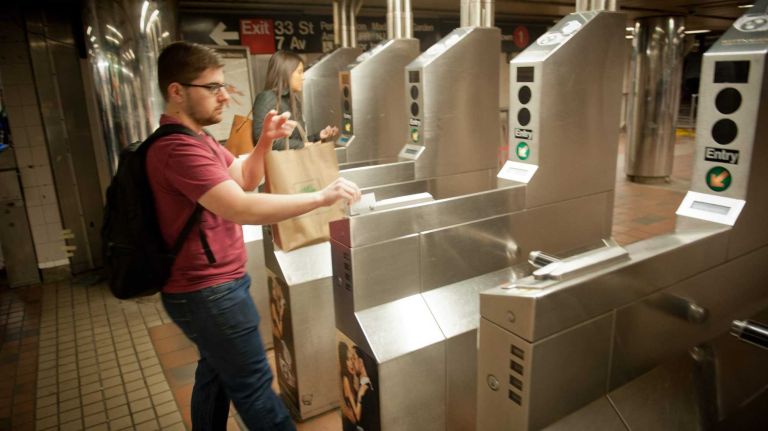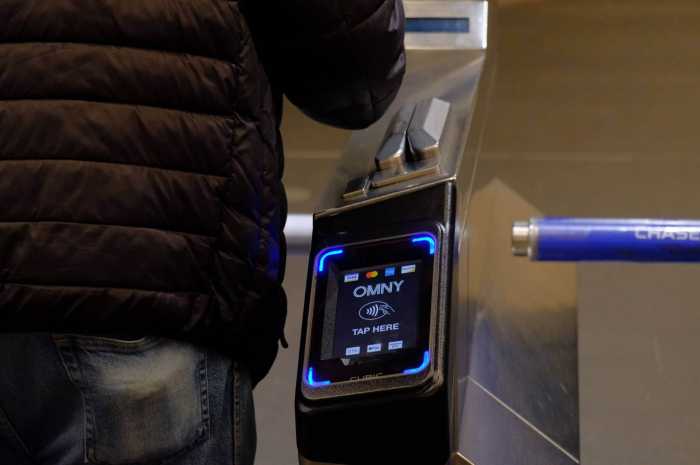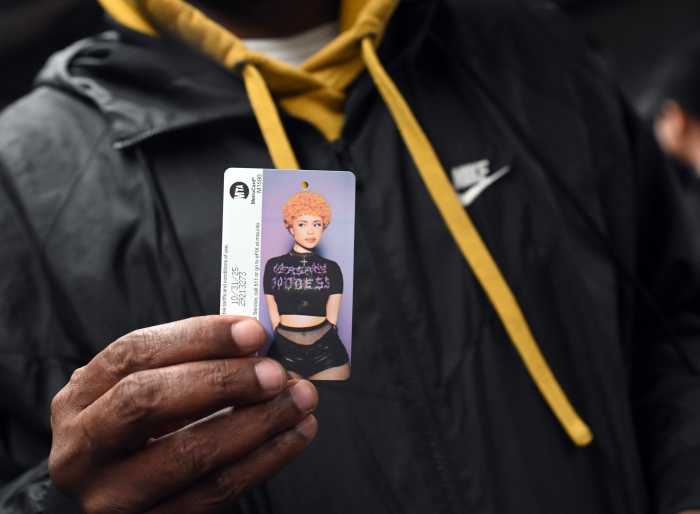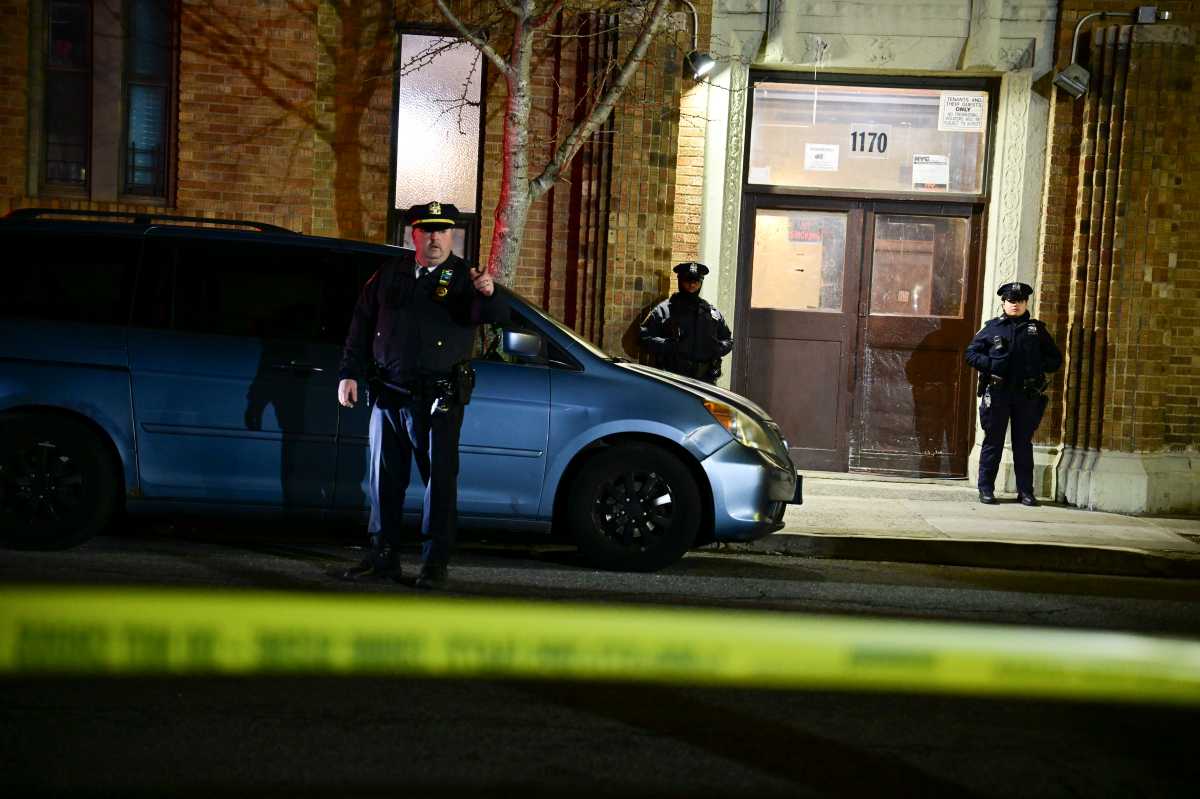The MTA is losing tens of millions of dollars each year to MetroCard scammers, according to the transit authority.
As part of a crackdown on fare evasion, the MTA and police will in part focus on vandals who break MetroCard vending machines to sell swipes at turnstiles. The crime costs the MTA between roughly $30 million and $40 million each year, Pat Warren, the MTA’s new chief safety officer, said Monday.
The MTA estimated it lost more than $200 million in potential revenue to fare evasion in 2018–not including roughly $40 million it spends sending staff to repair tampered-with MetroCard machines. Warren believes targeting scammers could help the MTA’s goal to recoup roughly $50 million via fare evasion-related enforcement.
“We have a focused effort looking at trying to gain back some of those monies by policing those areas,” Warren said, of stations where there is a high rate of scamming and fare evasion. The authority is also monitoring stations and times of day where evasion is high.
“By looking at this tactical effort as where fare evasion occurs and applying our resources, in this case, police forces, to those locations we’re pretty confident that we’ll be able to get to $50 million [in savings] annually,” Warren continued.
A persistent issue for the MTA over the years, scammers typically vandalize vending machines within stations and then sell swipes to commuters looking to get through the turnstiles, deploying one in a stack of MetroCards they’ve acquired, according to Warren.
“It’s a business to these swipers,” Warren told amNewYork.
The scammers could collect time-based MetroCards, or cards from tourists near airports as they leave the city, according to Warren. Sometimes tricksters will don a safety vest; open an emergency gate and charge riders a dollar or two to walk through at high-volume stations—like those near sporting events, he said.
“They’ll pretend like they’re the MTA: ‘Oh, the turnstile is broken; give me two bucks or three bucks.’ People think, ‘Oh, how nice of the MTA.’ Well, it’s not the MTA,” Warren said. “We don’t do that.”
Tried and true tactics of swipe-sellers also include “jamming” up machines with paper or other garbage or pouring honey or syrup on the keyboard to disgust riders enough not to touch the machines, Warren said.
The MTA for a year now has tried to more take a more focused attempt to curb fare evasion, which has drawn controversy among the criminal justice community and certain elected officials. The authority has faced intense backlash in recent months as it has moved forward with plans to hire 500 new MTA police officers to, in part, combat fare evasion, due to fears of biased overpricing in the transit system.
Several board members called for an enforcement and deployment plan for new MTA officers before the board votes to approve the MTA’s next operating budget for 2020, which greenlights the authority to spend roughly $249 million over the next four years to hire the 500 cops.
One board member, Veronica Vanterpool, highlighted a viral video from Saturday during SantaCon, which showed a drove of people dressed as Mr. Claus jumping turnstiles without repercussion.
“Rightfully, there is a lot of concern in the public. They see these two competing realizations in our system. There is a very real perceived inequity in how…this enforcement is being rolled out in our system,” Vanterpool said, noting that most Santas in the video did not appear to be people of color.
It was not clear whether the fare evaders caught on camera were serendipitously jumping the turnstile during SantaCon, or taking part in an organized protest of the MTA.
Vincent Coogan, the NYPD’s assistant chief at the Transit Bureau, said if police were stationed nearby, they would have taken action.
“We did have extra personnel out for SantaCon…I don’t know if we had anybody at that particular station, but we did see there were no police in the video, right, that you saw,” Coogan said. “So I would hope they would do something if they saw a bunch of people jump the turnstile.”
Read more: Police Blotter: Details of Ka Chor Yau’s Case from 2015







































